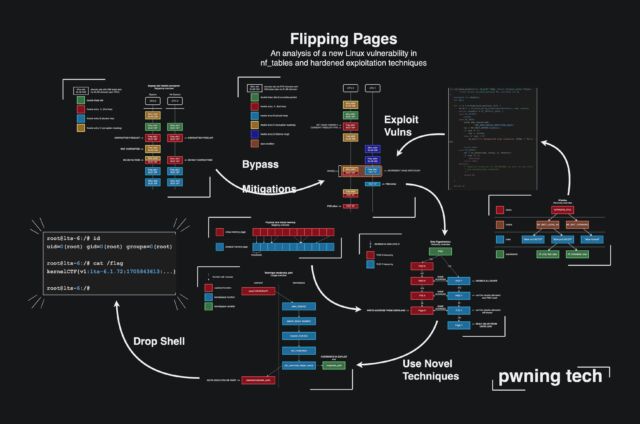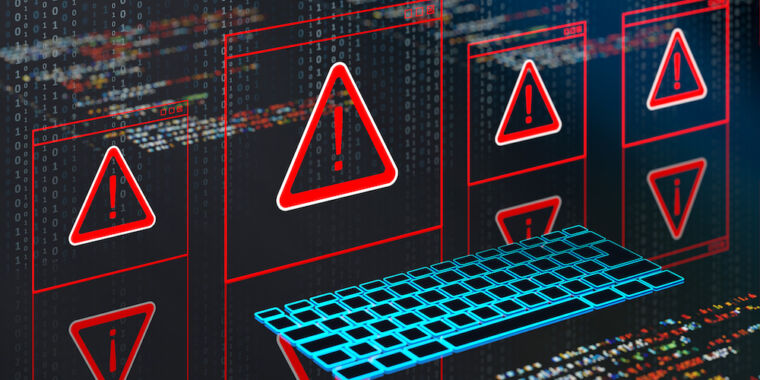Getty Images
The US Cybersecurity and Infrastructure Security Agency has added a critical security bug in Linux to its list of vulnerabilities known to be actively exploited in the wild.
The vulnerability, tracked as CVE-2024-1086 and carrying a severity rating of 7.8 out of a possible 10, allows people who have already gained a foothold inside an affected system to escalate their system privileges. It’s the result of a use-after-free error, a class of vulnerability that occurs in software written in the C and C++ languages when a process continues to access a memory location after it has been freed or deallocated. Use-after-free vulnerabilities can result in remote code or privilege escalation.
The vulnerability, which affects Linux kernel versions 5.14 through 6.6, resides in the NF_tables, a kernel component enabling the Netfilter, which in turn facilitates a variety of network operations, including packet filtering, network address [and port] translation (NA[P]T), packet logging, userspace packet queueing, and other packet mangling. It was patched in January, but as the CISA advisory indicates, some production systems have yet to install it. At the time this Ars post went live, there were no known details about the active exploitation.
A deep-dive write-up of the vulnerability reveals that these exploits provide “a very powerful double-free primitive when the correct code paths are hit.” Double-free vulnerabilities are a subclass of use-after-free errors that occur when the free() function for freeing memory is called more than once for the same location. The write-up lists multiple ways to exploit the vulnerability, along with code for doing so.
The double-free error is the result of a failure to achieve input sanitization in netfilter verdicts when nf_tables and unprivileged user namespaces are enabled. Some of the most effective exploitation techniques allow for arbitrary code execution in the kernel and can be fashioned to drop a universal root shell.
The author offered the following graphic providing a conceptual illustration:

pwning tech
CISA has given federal agencies under its authority until June 20 to issue a patch. The agency is urging all organizations that have yet to apply an update to do so as soon as possible.


/static.texastribune.org/media/files/f5fdb1dff4d6fd788cba66ebaefe08d0/Paxton_GOP_Convention_2018_BD_TT.jpg)





